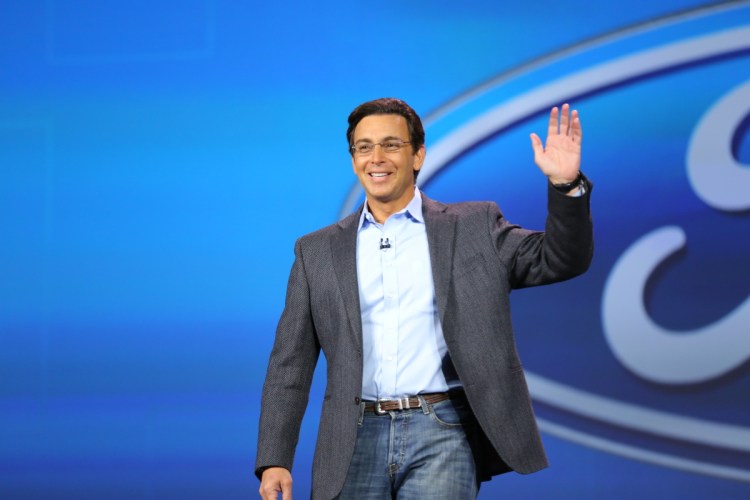LAS VEGAS — Ford Motor Company says it will engage in 25 experiments in cities around the world to test new driving models. Most of the experiments involve some form of car sharing.
Ford CEO Mark Fields announced the experiments this morning at the company’s CES keynote.
Ford is studying ways that car owners might share their cars with other drivers.Ford’s experiments seem to be inspired by the success of high-flying car service Uber and also-ran competitors Lyft and Sidecar, which have shown that there’s a strong demand for people to use car transportation without actually owning cars. If the so-called “car sharing” trend signals a broad demographic shift away from car ownership, you could understand why a car company like Ford might be keenly interested in understanding — and getting ahead of — this wave.
For example, Ford’s positioning cars all around London so that people can rent them in a model similar to services like Zipcar. Drivers pay by the minute to use them.
In New York, Ford is testing a Dynamic Social Shuttle. This involves point-to-point pickup of riders by shuttles or buses. The vehicles might be driven by private individuals who can then be rated by the riders using an app.
Ford is working with dealers in Germany and India to enable consumers to share cars in their fleets.
In Dearborn, Michigan, Ford is developing fast charging for vehicles. It’s working with fast food restaurants to offer charging options for electric car drivers.
Big driving data
Ford is also focusing on the data it can collect from cars with its Big Data Drive, also happening in Dearborn. Ford will put an OpenXC “black box” in a fleet of cars to collect driving data in real time. The data will include information about the routes people drive, and where areas of traffic congestion are occurring.
Ford also wants to know the purpose of a driver’s trip. It may understand that the driver is taking a child to the hospital and might provide an app to help diagnose the problem on the way to the doctor.
But, Shields says, his company is very mindful of the privacy of the data. “We believe that customers own their data,” Shields says. “We may ask to use that data but only when the customer gives their full consent.”
“We see a world where automobiles talk to each other,” Shields says. He believes that cars will soon also communicate with cities to help relieve congestion.
Shields says four main principles are currently driving the development of Ford’s auto technology. The first one is the arrival of megacities. The existing infrastructure can’t support the number of cars that are expected to be on the road in the future, and this will cause problems.
The fact is that the number of cars on the road is expected to grow in the coming decades. Ford believes that the global middle class will grow from 2 billion to 4 billion in the next 20 years. Many of those people will want to own cars. The issues of air quality and congestion will become more and more important as all those cars hit the road.
While Mercedes-Benz made a high-profile announcement about a fully autonomous car here yesterday, Ford says it is more concerned about getting the technology right, and making sure that middle-class consumers can afford to buy cars that contain the new technology.
VentureBeat's mission is to be a digital town square for technical decision-makers to gain knowledge about transformative enterprise technology and transact. Learn More

